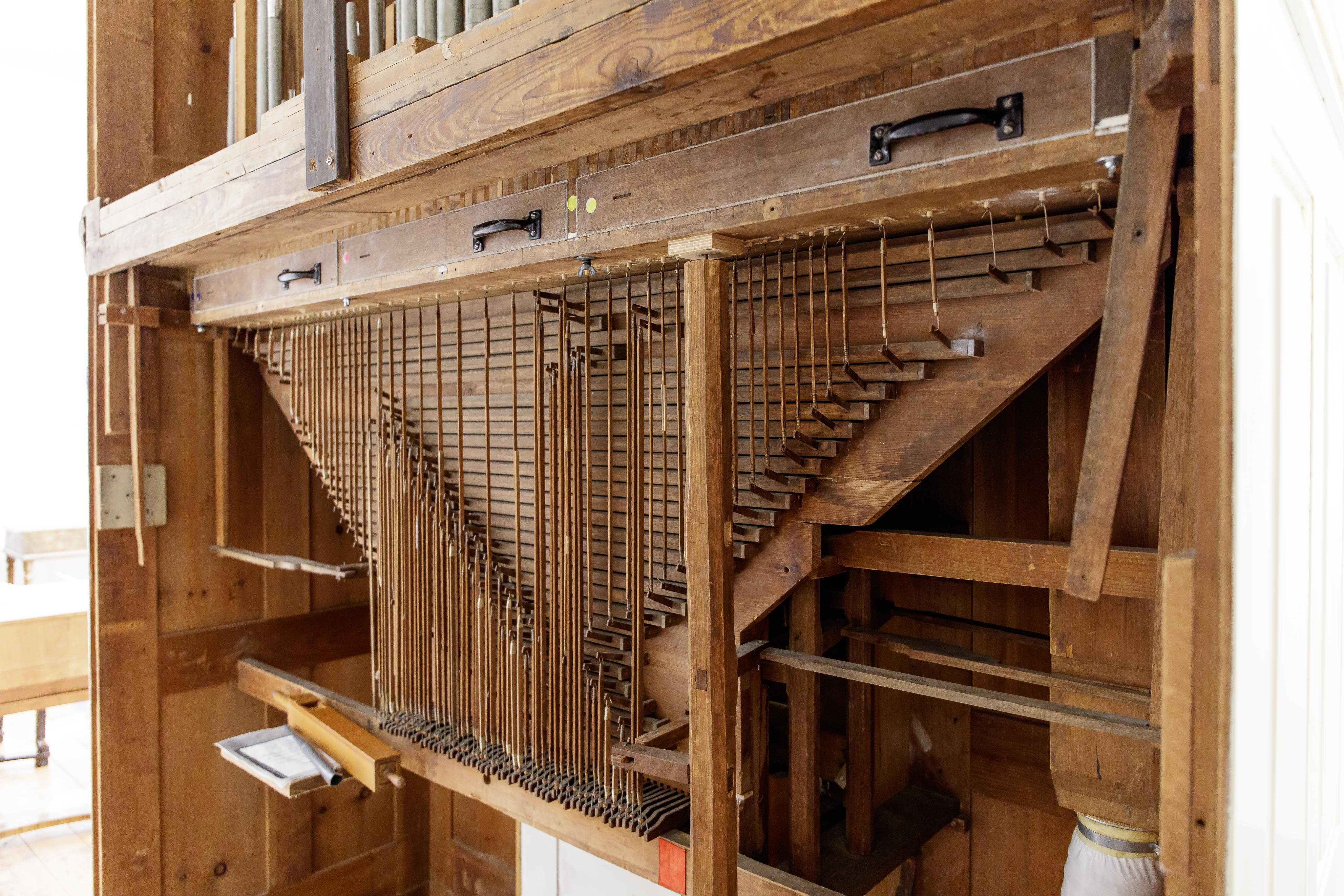
December 2018 - Rear of organ (Photograph by Byron Pillow, National Music Museum Photographer, submitted by Margaret Downie Banks/Margaret Downie Banks)

2004-10-30 - Status Note: There 1994. -Database Manager
2004-10-30 - From Zion Lutheran and Reformed near Orwigsburg, PA. Rebuilt1884 by Thomas Dieffenbach. Purchased May 1990 from Thomas S. Eader estate. Returned to original 6-stop condition. 2 manual stops and pedal stop from 1884 rebuild removed. -Database Manager
2020-11-04 - Gold stencilled signature on front of 1884 nameboard (same text handwritten on back of nameboard): *Built 1808, by Christ Dieffenbach, Berks Co., Pa.* / [within unfurling banner] *Rebuilt 1884, by Thos Dieffenbach Millersburg, Pa*. Single manual, tracker action, C-d3 (51 keys). Six original stops; three stops and pedalboard added by Thomas Dieffenbach in 1884. Polychromed case pipes painted by Thomas Dieffenbach's nephew, Jacob Dieffenbach. Built for Zion Lutheran and Reformed Church near Orwigsburg, Pennsyvania. Dedicated October 16, 1808. National Music Museum catalog number: NMM 4905 Purchase funds gift of Arne B. & Jeanne F. Larson Fund and J. Laiten Weed Estate, 1990. -Margaret Downie Banks
2020-11-05 - Updated through online information from Margaret Downie Banks, Associate Museum Dir.: Note that organ does NOT belong to the University of South Dakota; rather, it belongs to National Music Museum, Inc. -Jim Stettner
National Music Museum website Source: Taken from console. ca. 2000
Original 1808 configuration by Christian Dieffenbach: Principal 4' (bass and tenor pipes in facade) Quint 3' (bass pipes in facade) Salicet 4' Gedackt 8' (wood pipes) Flöte 4' (open wood pipes) Octave 2' 1884 additions by Thomas Dieffenbach (preserved separately from current organ set up): Open diapason 8' Dulciana 8' Subbass 16' Pedalboard (CC-g; 20 notes)
Source: http://orgs.usd.edu/nmm/abell3.html Date not recorded
Vermillion, South Dakota National Music Museum Christian Dieffenbach 1808 The organ has a typical Dieffenbach stoplist, here written in the unusual order in which the six ranks of pipes stand on the wind chest, from front to back: 4' Principal (metal pipes; 28 bass and tenor pipes in façade) 3' Quint (metal pipes; 6 bass pipes in façade) 4' Salicet (metal pipes) 8' Gedackt (stopped wood pipes) 4' Floete (open wood pipes) 2' Octave (metal pipes) [Received from Tim Handle 2012-11-10.]
Regrettably, it is not possible to display the information about the sponsor of this pipeorgandatabase entry or if there is a sponsor. Please see About Sponsors on Pipe Organ Database.